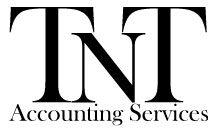Introduction
The 2026 Canadian tax season is shaping up to offer exciting opportunities for small businesses. With recent announcements from the Canadian government—including revised capital cost rules, changes in inclusion rates, and enhanced benefit programs—it’s time to get tax-savvy. This guide will walk you through essential write-offs, incentives, and strategies to make the most of your return.
1. Small Business Deduction (SBD): Keep More of What You Earn
If your business is incorporated, qualifying as a Canadian-Controlled Private Corporation (CCPC) lets you claim the Small Business Deduction (SBD), which drastically lowers the federal tax rate on your first $500,000 of active business income. Federal rates range from ~9% to 12%, varying by province 360Lendingtaxtips.ca.
Some provinces have improved their terms—for example, Nova Scotia reduced its rate from 2.5% to 1.5% and increased the small business income limit from $500,000 to $700,000 effective April 1, 2025.
2. Capital Cost Allowance (CCA) & Immediate Expensing
Traditional Depreciation (CCA)
Claim depreciation over time on capital assets like vehicles, machinery, and computers using CRA’s CCA classes Wikipedia.
Immediate Expensing & Accelerated Investment Incentive
New provisions reinstate immediate expensing (100% write-off in the first year) for eligible property in Classes 44, 46, and 50, acquired after April 16, 2024, and available for use before January 1, 2027
Plus, start-ups and small businesses can benefit from the Accelerated Investment Incentive (AII), allowing full first-year CCA deductions—helpful when timing capital purchases strategically.
3. Home Office & Vehicle Expenses
Home Office: If a dedicated part of your home is exclusively used for business, you can deduct a pro-rated share of rent/mortgage interest, utilities, internet, property tax, and insurance.
Vehicle: You can deduct business-use portions of fuel, maintenance, insurance, lease/depreciation, and registration—just track your mileage accurately. Tools like MileIQ can help.
4. Professional and Marketing Expenses
Professional Services: Fees for accountants, lawyers, and consultants are fully deductible—just keep clear records documenting the business purpose.
Marketing & Advertising: Digital advertising (Google, social media), website costs, and branding initiatives are all fully deductible.
5. Office Supplies, Tools & Software
Most supplies (pens, paper, ink) and software subscriptions are fully deductible. Larger equipment may fall under CCA depending on cost and category.
6. GST/HST Input Tax Credits (ITCs)
If you’re GST/HST-registered, you can claim the tax paid on eligible business purchases as Input Tax Credits (ITCs)—but only the tax portion, not the entire cost Reddit. Even if you’re under the mandatory threshold ($30,000 annual revenue), voluntarily registering can still pay off.
7. SR&ED: Research & Development Tax Credits
For businesses involved in scientific or experimental development, the SR&ED program offers significant opportunities:
Federal Investment Tax Credit (ITC): Up to 35% of the first $3 million in qualifying expenditures for CCPCs; others get 15% Wikipedia.
Provincial Add-ons: E.g., Quebec offers 30%, Ontario 10%, Manitoba 20%, etc. Wikipedia.
New Enhancements: Budget 2024 proposed raising CCPC ITC limit to $4.5 million and extended other phase-out thresholds Government of Canada. The CRA is also modernizing by enabling digital SR&ED pre-claim services and submissions via SALT (Self‑Assessment and Learning Tool) Government of Canada.
8. Meals & Entertainment
Generally, you can deduct 50% of business-related meals and entertainment, and claim 50% of the GST/HST on them as ITCs. For long-haul truck drivers, this increases to 80% Government of Canada.
9. Capital Gains & Lifetime Exemptions
Lifetime Capital Gains Exemption (LCGE): Increased to $1.25 million effective June 25, 2024 — with indexation resuming in 2026.
Capital Gains Inclusion Rate Change: A planned hike from 50% to 66 ⅔% has been canceled. The 50% inclusion rate remains in effect for all gains realized before January 1, 2026.
10. Bonus Credits & State-Specific Highlights
Mineral Exploration Tax Credit extended to 2026—good for certain industries Government of Canada.
Volunteer Tax Credits for firefighters and search/rescue volunteers were doubled to $6,000 for 2024+ Government of Canada.
Final Takeaways
Strategically time purchases to maximize CCA or immediate expensing.
Keep detailed documentation for all deductions—especially mileage, business purpose, and eligibility.
Leverage free CRA tools like SALT and liaison support to ease filings and ensure accuracy.
Review provincial updates annually, especially if incentives vary regionally.

